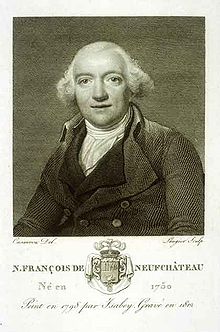

The Decadary Cult (French: Culte décadaire),[1] also called Tenth-day Cult, was a semi-official religion of France during the Directory period of the French Revolution, intended as a dechristianised replacement of the Christian Sunday worship with a quasi-religious festival on the day of rest in the 10-day week of the French Republican Calendar.[2][3]
The Decadary Cult was a system of worship based on festivals, so-called fêtes décadaires, which were celebrated every décadi, the day of rest in the 10-day week of the Republican calendar. In addition, there was a cycle of annual festivals, celebrating various themes such as youth, old age, the foundation of the French Republic and the execution of Louis XVI. The festivals included the singing of patriotic songs, banquets, games, and the presentation of awards. The festivals were highly politicised, patriotic events, intended to promote Republican norms and values among the populace.[3]
- ^ R.R. Palmer, The Improvement of Humanity: Education and the French Revolution, Princeton University Press, 2017, pp. 192-195
- ^ Eric Voegelin, From Enlightenment to Revolution, Duke University Press, 1982, p. 172
- ^ a b Andrew J. S. Jainchill, Reimagining Politics After the Terror: The Republican Origins of French Liberalism. Cornell University Press, 2008, pp. 84-88.